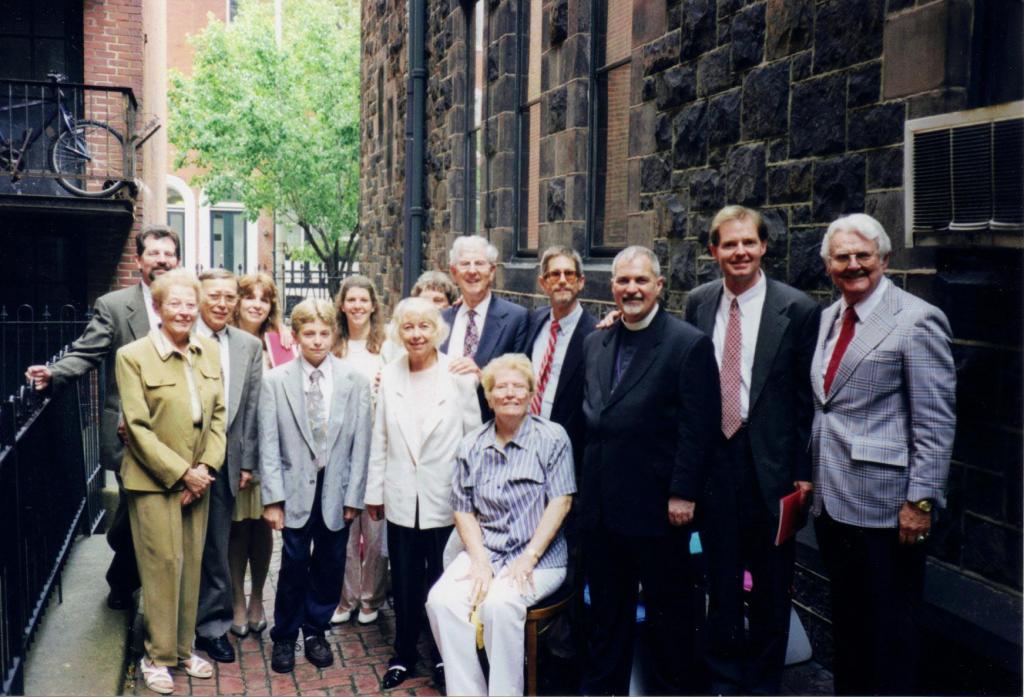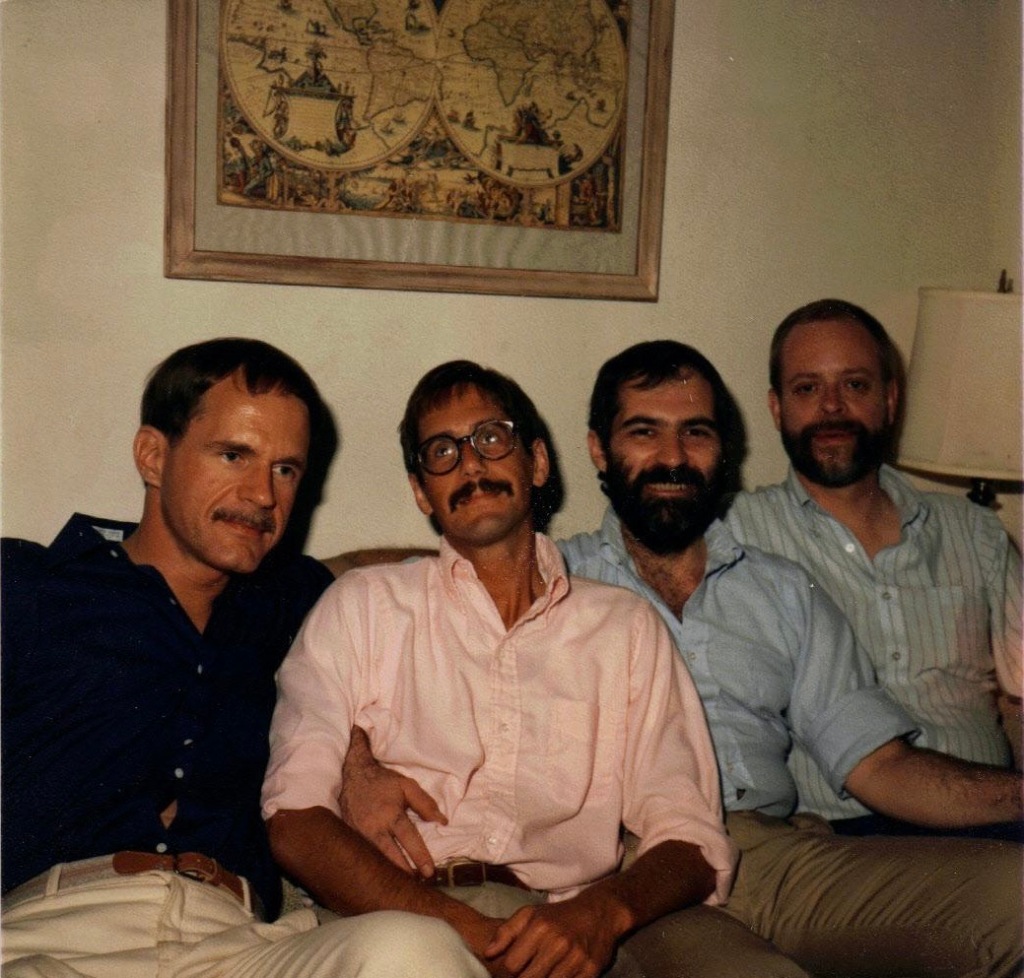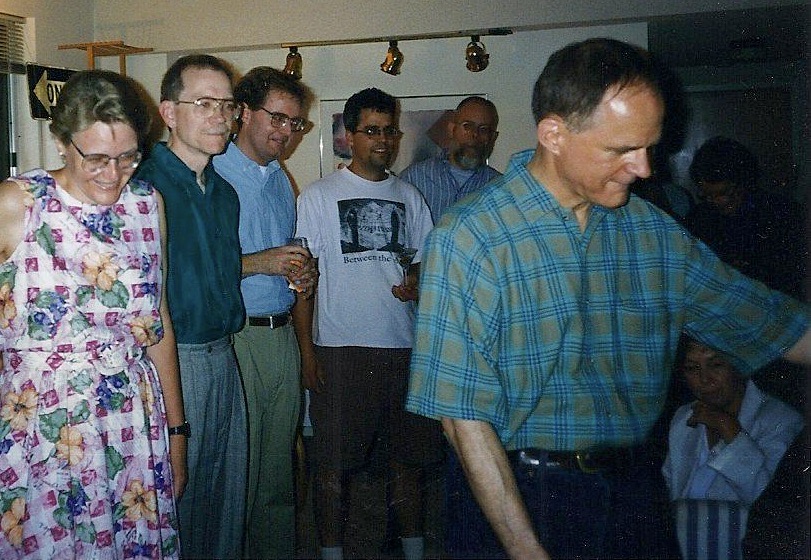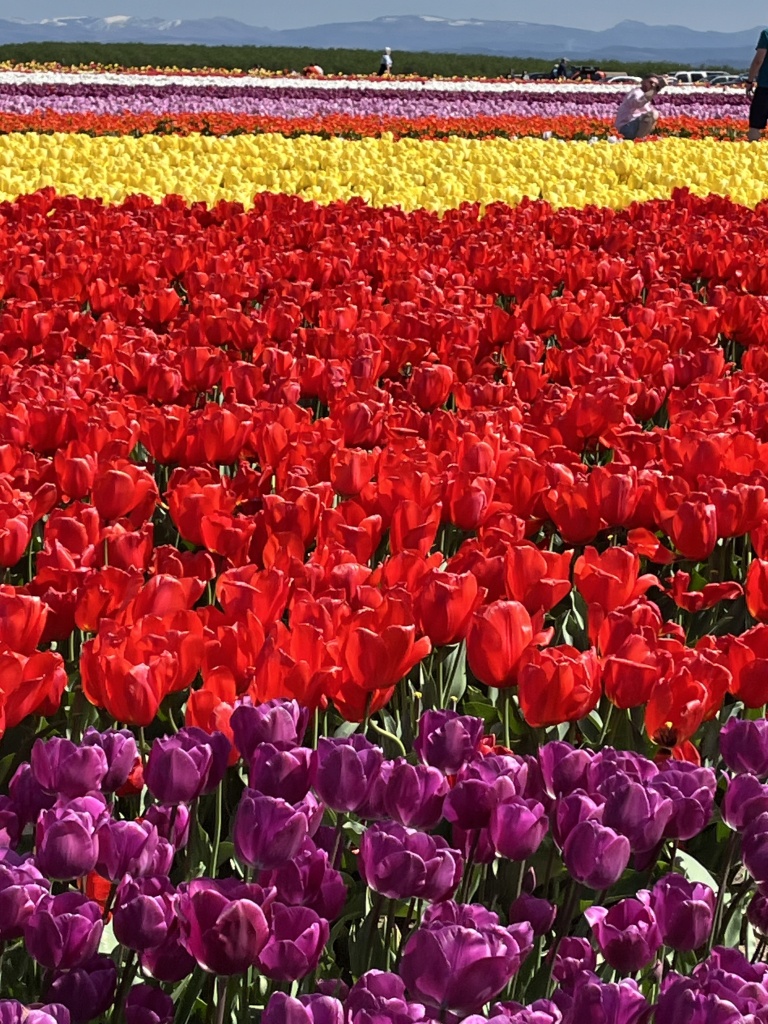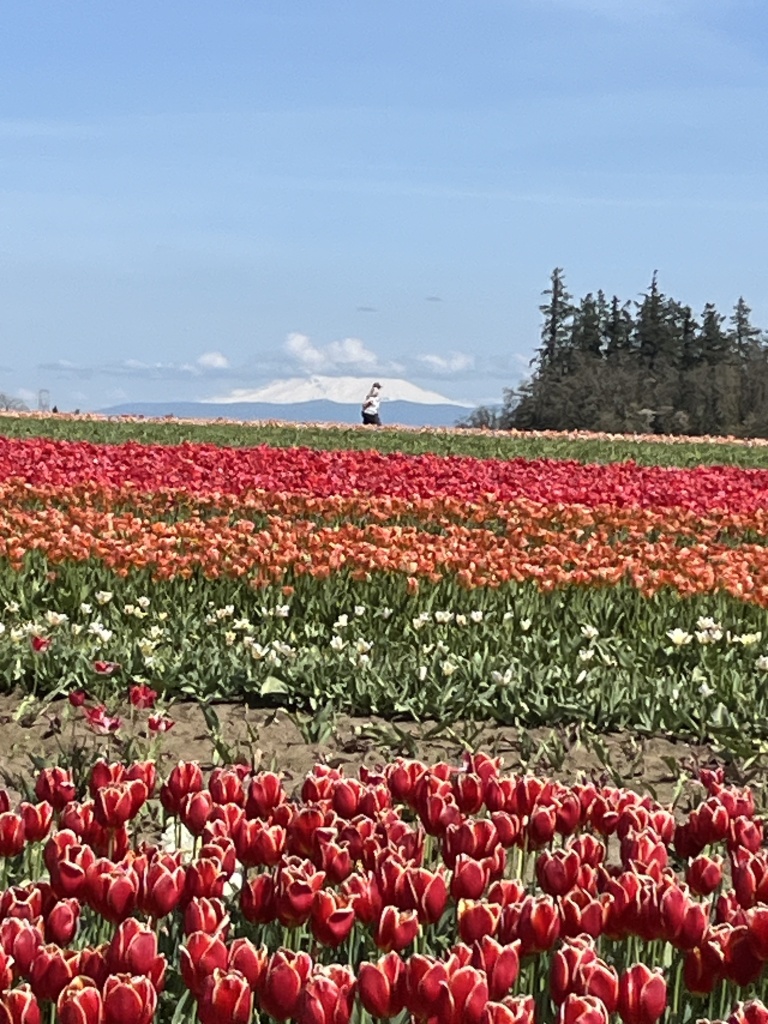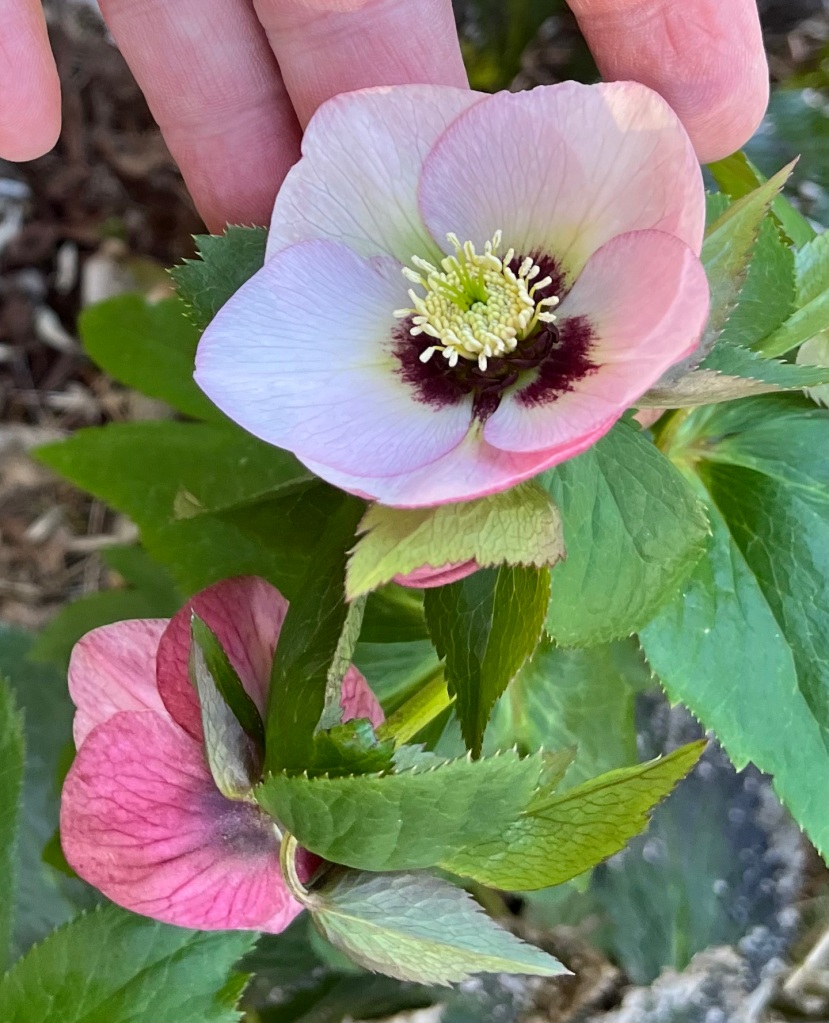Sometimes you have to take a chance on love.
Sounds like a song lyric, doesn’t it? But it is just the honest truth about God, and creation, and being LGBTQ+ and reality. Love defines us, and if we aren’t willing to take a chance on love then we risk the purgatory of that vacuum dimension where love never is. When we take that chance, when we give just a little bit of love, it comes back a thousand-fold, and we thrive in what the scriptures call heaven on earth, otherwise known as your real life.
God, who is love, always helps us, even if we try just a liitle bit, God helps us to sure footing on God’s foundation of loving-kindness. God is always with us, we are most in God’s grace when we seek to walk in love. The point is, take that chance, let down your wall, love, and you will receive grace a thousand-fold.
When approaching scripture it is always important to understand that it is intended as a form of revelation, and neither as history or as instructions. The story [1 Samuel 17: (1a, 4-11, 19-23), 32-49] about David slaying Goliath in the midst of a pretty unpleasant battle is intended to be revealing because—wait for it: because David who walks on the fundament of the love of God always wins over the vacuum dimension absent love.
The Psalmist [Psalm 9:9-20 Confitebor tibi] sings of God, who is love, whose love is known as justice.
Paul writes to the church in Corinth [2 Corinthians 6:1-13]: that today, now, this moment, with every breath, is the day of salvation. Salvation is now. If we can accept it. If we can walk in love. We must live with wide open hearts, as the hearts of children, open to joy and love.
I remember well my first days in seminary. We were all extremely spiritually hyped up. After all, here we were beginning the real journey to the priesthood. We ate together and worshipped together and learned together and lived together (albeit in our own apartments in the close). A couple of days in I was going to get my mail when I ran into a couple of people from my class. They said “I saw you were out until 8:30 last night then your lights were on” and I was sort of shocked. It suddenly became apparent to me that living in community meant living fully in community.
If you are LGBTQ+ you probably, like I did that day, recoil at the idea of living “in community” because that means living in the prying eyes of judgmental people. So, that was a challenge for me, to accept the love of my new friends and to stop being afraid of their love.
At a couples workshop the leader asked us to introduce ourselves to the group. My husband was sitting on the floor between my legs, and I patted him on the head and introduced him as my puppy, which was a tenderness between us. You should have seen the shocked looks on the faces of all of the heterosexuals in the group. They were stunned I could be so rude; and yet, I thought (and he thought) that I had been perfectly loving. So you see, living a life of love is always a challenge. It isn’t as easy as just having happy thoughts and saying “I love you” or even just “thank you” all the time.
Love is tough work. We who are God’s LGBTQ+ people are, indeed, just folks some of the time, but we also are the real loving people God created us and called us to be, and our lives take shapes that are different from those of other folks. We live integrated into the community, sort of, but also we live in our own ways of loving of which we should be proud and for which we should demand the justice of acceptance.
Love is tough work but it is worth it because love is the only path to salvation.
In Mark’s Gospel [4:35-41] exhausted Jesus gets in the boat with his disciples to escape the crowd by crossing to the other side; he falls asleep even as a storm comes up. They panic, awaken him, and forgetting all about love because they have given themselves over to fear, they reproach him. Weary, but understanding, and loving, he stops the wind. Then he reprimands them gently: “Why are you afraid? Have you still no faith?” As Mark tells it, the disciples miss the point, that it was their fear that opened the door to the vacuum of the absence of love.
Faith is trust that the power of love in action fills the void and wipes out that vacuum. Love is the power that saves. Love is the power that brings salvation now. Love is the power known in God’s justice.
We have that very power in the love we share, the love we experience, the joy we bring to each other and to those around us and by extension to the whole of creation. We are called to have pride in our LGTBQ+ lives and the love that defines them.
For Pride 2024 The Episcopal Church has unveiled a new pride shield (https://www.episcopalchurch.org/publicaffairs/episcopal-church-unveils-new-pride-shield-in-celebration-of-lgbtq-inclusion/ ). The shield is an attempt to integrate and celebrate the power of God’s LGBTQ+ people and of God’s love lived out as justice.

The design retains the upper-left blue corner of The Episcopal Church’s shield logo and incorporates elements of the traditional Pride flag as well as the Progress Pride flag and Philadelphia Pride flag. In their use of black, brown, pink, and light-blue diagonal lines, the latter two flags represent intersectional progress in acknowledging people who are often overlooked by the mainstream LGBTQ+ movement: communities of color; the transgender community; and the many thousands harmed by anti-LGBTQ+ policy—from those who lost their lives in the AIDS crisis of the 1980s and ‘90s, to those still disproportionately impacted today.
In June 2023, Presiding Bishop Michael Curry issued a video message of encouragement to “all of my LGBTQ+ family members,” noting, “I believe deep in my soul that God is always seeking to create a world and a society where all are loved, where justice is done, and where the God-given equality of us all is honored in our relationships, in our social arrangements, and in law.”
Proper 7 Year B RCL 2024 (1 Samuel 17: (1a, 4-11, 19-23), 32-49; Psalm 9:9-20 Confitebor tibi; 2 Corinthians 6:1-13; Mark 4:35-41)
©2024 The Rev. Dr. Richard P. Smiraglia. All rights reserved.

